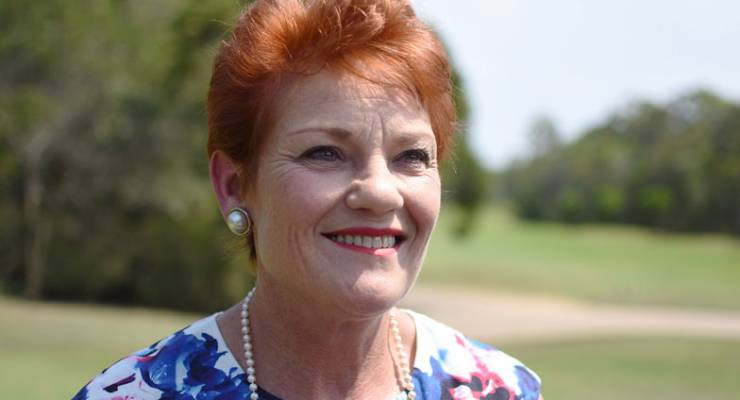
As bad-to-terrible results continue to rain down on the Turnbull government with monotonous uniformity, recent opinion polls have at least turned up one phenomenon of interest: a curious resurgence in support for Pauline Hanson’s One Nation.
Last night’s Newspoll result in The Australian was a case in point, with the headline figure showing the Coalition trailing 53-47 on two-party preferred — more or less what every pollster has been saying all year — but with One Nation ticking up two points to 11%, giving the party its best result since Newspoll began publishing numbers for it in February.
This corroborates Essential Research’s finding that the party has lately been emerging from the trough it fell into around March, with last week’s poll recording a two-point increase to 8%.
Perhaps most importantly, the most recent poll from the party’s foundation state of Queensland, conducted by ReachTEL for the Sunday Mail from a bumper sample of 3636, credited the party with 17% of the primary vote, which would make it a big show to emerge as kingmaker at a state election expected to be held later this year.
All of this polling has been conducted while Hanson has been suffering a steady diet of bad press concerning leaked recordings of phone conversations, political donations being paid into personal bank accounts, and an Australian Electoral Commission investigation into allegations the party failed to declare a businessman’s donation of a light aircraft.
It’s tempting to conclude that the type of voter receptive to Hanson’s message either doesn’t follow the news all that closely, or — perhaps more to the point in today’s environment — doesn’t trust those who report it, preferring to think Hanson is once again being victimised by establishment interests who feel threatened by her.
Meanwhile, other recent news stories will certainly not have escaped the notice of Hanson’s actual or potential supporters, namely two major terrorist attacks in Britain and the deadly siege in suburban Melbourne a fortnight ago.
Another point to be made about the apparent rise in One Nation support is that it runs counter to a narrative that has gained traction internationally in recent months, which proposes that populism has gone off the boil as voters the world over absorb the ugly realities of Brexit and the Donald Trump presidency.
In a review of the year’s electoral form in Europe, Nate Silver at FiveThirtyEight observes that populist parties have not only endured a series of disappointing results in Britain, France, Austria and the Netherlands, but they have done so according to a “remarkably consistent pattern”: “The nationalist party fades as the election heats up and it begins to receive more scrutiny. Then it further underperforms its polls on election day, sometimes by several percentage points.”
If that sounds familiar to Australian ears, it’s because it’s exactly what happened to One Nation at the Western Australian state election three months ago.
As such, all that should be said at this stage is that One Nation certainly has the potential to shake things up in Queensland, but the realisation of this potential will require a good deal more discipline and efficiency than the party has been able to demonstrate over the past year.








Crikey is committed to hosting lively discussions. Help us keep the conversation useful, interesting and welcoming. We aim to publish comments quickly in the interest of promoting robust conversation, but we’re a small team and we deploy filters to protect against legal risk. Occasionally your comment may be held up while we review, but we’re working as fast as we can to keep the conversation rolling.
The Crikey comment section is members-only content. Please subscribe to leave a comment.
The Crikey comment section is members-only content. Please login to leave a comment.